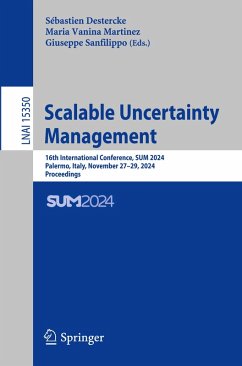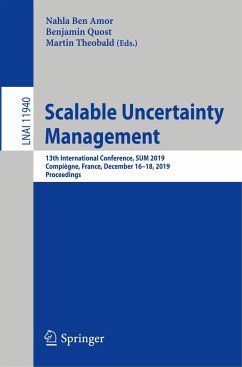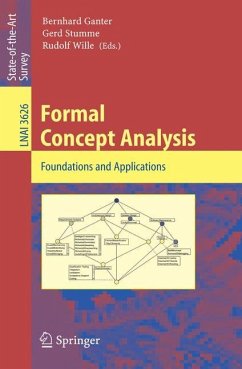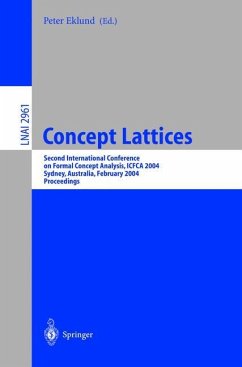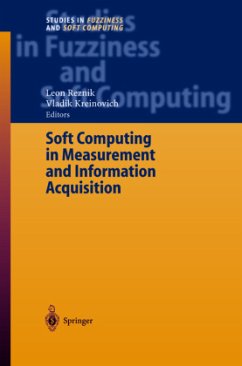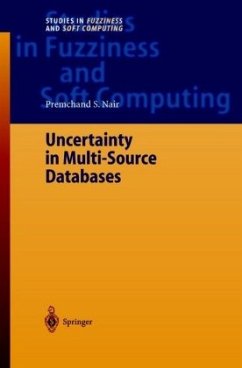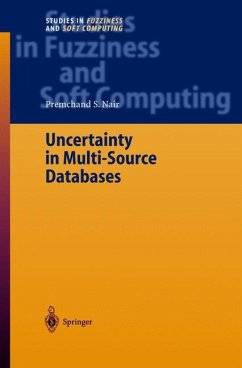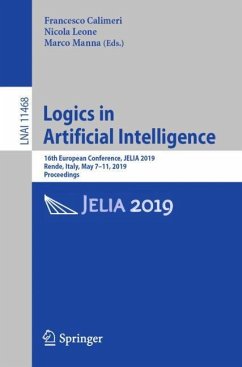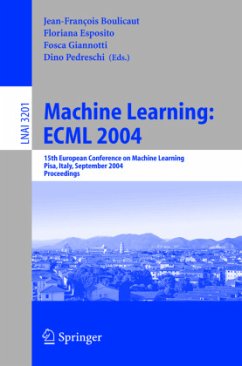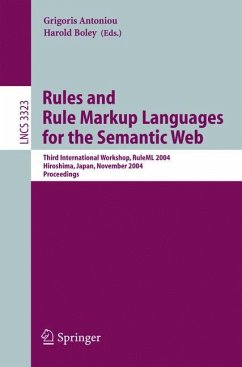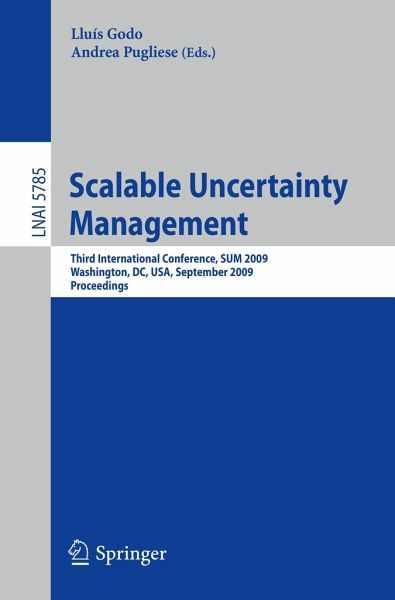
Scalable Uncertainty Management
Third International Conference, SUM 2009, Washington, DC, USA, September 28-30, 2009, Proceedings
Herausgegeben: Godo, Lluis; Pugliese, Andrea

PAYBACK Punkte
20 °P sammeln!
A large amount of available data nowadays includes uncertain, imprecise and inconsistentinformation. The possibility ofintegratingandexploitingthese data calls for sound and e?cient techniques for managing uncertainty and handling inconsistency. These issues, which have been traditionally addressed within the arti?cial intelligence community, already play a key role in ?elds like databases or the semantic Web. The annual International Conference on Scalable Uncertainty Management (SUM), grown out of this large interest in uncertainty and inconsistency, aims at bringing together all those inter...
A large amount of available data nowadays includes uncertain, imprecise and inconsistentinformation. The possibility ofintegratingandexploitingthese data calls for sound and e?cient techniques for managing uncertainty and handling inconsistency. These issues, which have been traditionally addressed within the arti?cial intelligence community, already play a key role in ?elds like databases or the semantic Web. The annual International Conference on Scalable Uncertainty Management (SUM), grown out of this large interest in uncertainty and inconsistency, aims at bringing together all those interested in the management of uncertainty and inconsistency at large,fostering the collaborationandcross-fertilizationbetween the reasoningunder uncertaintycommunity andthe databaseandsemanticWeb communities. This volume contains the papers presented at the Third International C- ference on Scalable Uncertainty Management (SUM 2009), which was held in Washington DC, USA, September 28-30, 2009, following the successful pre- ous editions of SUM 2007 in Washington DC, USA, and SUM 2008 in Naples, Italy. It contains 21 technical papers, which were selected out of 30 submitted papers in a rigorous reviewing process, where each paper was reviewed by three Program Committee members. The volume also contains abstracts of the two invited talks. We wish to thank all authors who submitted papers and all c- ference participants for fruitful discussions. We are grateful to Amol Deshpande and Thomas Lukasiewicz for their invited talks at the conference. We would like to thank all the Program Committee members and external referees for their timely expertise in carefully reviewing the submissions.





